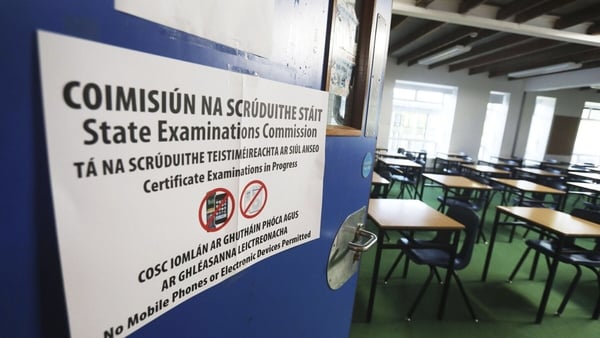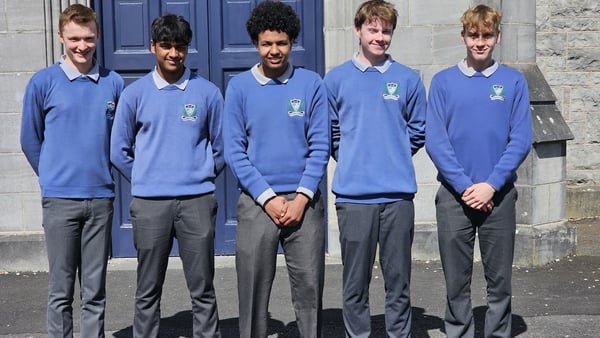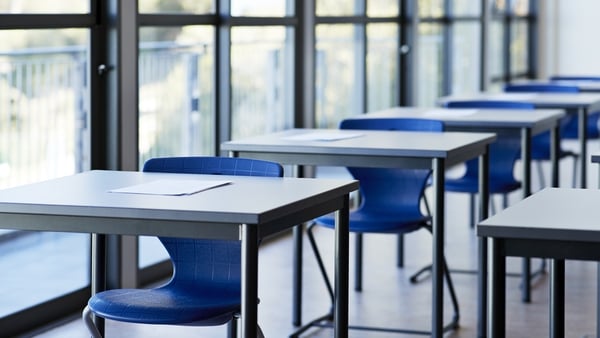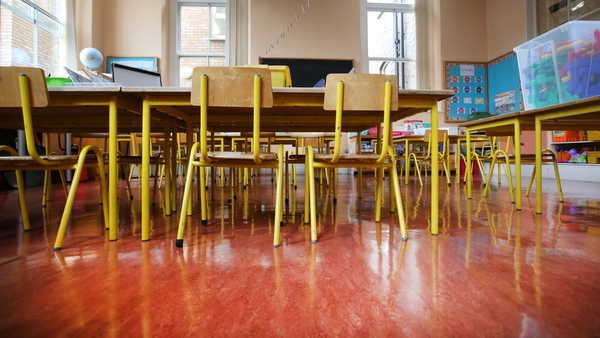A Palestinian family who fled the war in Gaza are sleeping in a car in Dublin after three council areas rejected their appeal for emergency homeless accommodation.
Haneen Alkahlout and her two children, two-year-old Nouralaen and nine-month-old Sarah, joined their husband and father Hazem Malaka here on 9 February on family reunification visas provided by the Government.
They have been homeless since their arrival and sleeping in their car.
Hazem was granted refugee status last August. He got out of Gaza via Egypt weeks after the Israeli bombardment began and made his way to Ireland because his two brothers are here.
Nouralaen suffered a broken leg and burns to her face, neck and chest after an Israeli mortar exploded close to the tent she was living in with her mother in Rafah in southern Gaza.
The tent was set on fire by the explosion and Nouralaen was thrown by its impact.
"There were bricks on her legs and her body and the people there pulled her out from under the rubble," her father explained.
Because she could not access medical care, Nouralaen's leg has not healed properly and she needs further treatment.
Haneen and her daughter were forced to flee to Rafah after Israel ordered people to leave the hospital they had been sheltering in in Zaytun in Gaza and move south. The Red Crescent hospital was close to their home which had been destroyed by shelling.
The family say shortly after Nouralaen sustained her injuries, in March of last year Haneen and her daughter managed to get into Egypt from Rafah. This was complex and expensive. Hazem said he had to pay $8000 to get his wife out, and €4000 for his daughter. In Egypt Haneen gave birth to the couple's second daughter Sarah in an emergency caesarean section.
After the birth, Haneen was diagnosed with postpartum psychosis, which is a severe form of post-natal depression.
The family initially hoped to stay in the room that Hazem was renting privately and living in in the South Dublin County Council area. This was after Hazem was told by the authorities that he could not apply for housing for his family until after they had arrived here. However the landlord evicted the family, citing concerns about overcrowding.
Hazem has attempted to apply for emergency homeless accommodation from three county councils, but all have told him he must apply to a different one.
Dún Laoghaire-Rathdown County Council, which is the council in the part of Dublin in which he had been working, told him he should apply to South Dublin County Council, where he had lived or to Louth County Council where he had been in Direct Provision prior to being granted refugee status.
South Dublin County Council told Mr Malaka that his family had no local connection. Louth County Council also rejected the family on the basis that they have no local connection to Louth.
Both the charity dealing with the family, Crosscare, and homeless charity Focus Ireland, have told RTÉ News that there is no requirement in law for the family to have a local connection to a council in order to receive emergency accommodation.
Hazem has been undergoing treatment for trauma at the National Centre for Survivors of Torture, Spirasi.
Both his wife and his toddler daughter are also severely traumatised by their experience of the war in Gaza and the aftermath in Egypt, when Haneen was alone with her toddler and heavily pregnant, and then a mother for a second time.
Once he was granted visas for his family, Hazem travelled to Egypt to bring them back to Ireland.
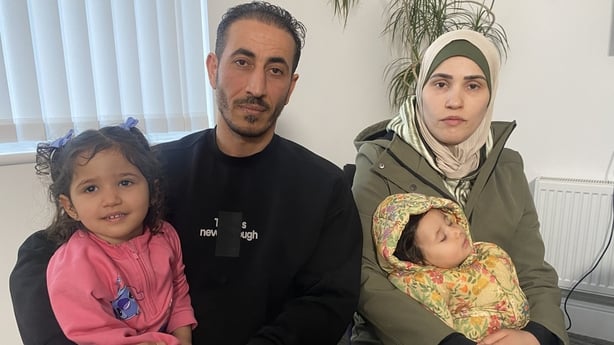
'No life for us back home'
In a letter seen by RTÉ News, Dún Laoghaire-Rathdown County Council says it did initially offer to provide accommodation for Haneen and the children together "for a period of time" and for Hazem separately, but Hazem says he absolutely cannot leave his wife alone with the children.
He says his wife and the children need him to be by their side. While Haneen understands English she does not speak it.
Hazem says he drives around at night until he finds a quiet place. Two nights ago the family slept in the Tallaght area. At 10pm last night they were planning to park up in a quiet part of the south Dublin suburb of Templeogue for the night.
Before 7 October, Hazem ran a coffee shop in Gaza and was studying public relations and journalism at university. Haneen and he married in 2021 after he returned from South Africa where he had been living for a number of years. He moved back permanently to Gaza soon after.
Hazem says his coffee shop was destroyed in the early days of the bombing. The university was also destroyed.
"There is no life for us back home. That's it. It is gone," he said. "And now we have to do this here. It is worse than the war. We sleep anywhere. We are in the car and thank God I have a car otherwise we would have died in the cold."
Hazem was working here but he cannot work now.
"It is two-and-a-half weeks and no one wants to take us. I can't even go back to work because, where can I leave them?" he asks. "We need a shelter. We need a warm place."
"I feel helpless, hopeless, left alone in this struggle and no one is looking at us with a heart, with an eye of mercy," he added.
Mike Allen of homeless charity Focus Ireland said: "This is so unnecessary. There is no legal impediment to any of these councils providing emergency accommodation for this family. They have been approved to come to Ireland and they have the right to access services."
Mr Allen said the barriers that the Malaka family are faced with are "not necessarily unusual".
Describing the family’s situation as "heartrending", Richard King of the Crosscare Migrant Project, which is advocating for the Malaka family, said: "This family absolutely needs to be together. They just need a roof over their head, so that they can then begin to feel secure and safe and begin to get the medical and emotional support that they need. All those things will flow from there."
RTÉ News has seen some correspondence from the three councils. When contacted for information or comment, all three councils said they did not comment on individual cases.
Dún Laoghaire-Rathdown County Council said: "We carry out homeless and social housing assessments in accordance with regulations and guidelines issued by the Department of Housing, Local Government and Heritage. When a person is eligible for social housing they are advised accordingly. When they are not eligible, they are advised of their alternative options."


